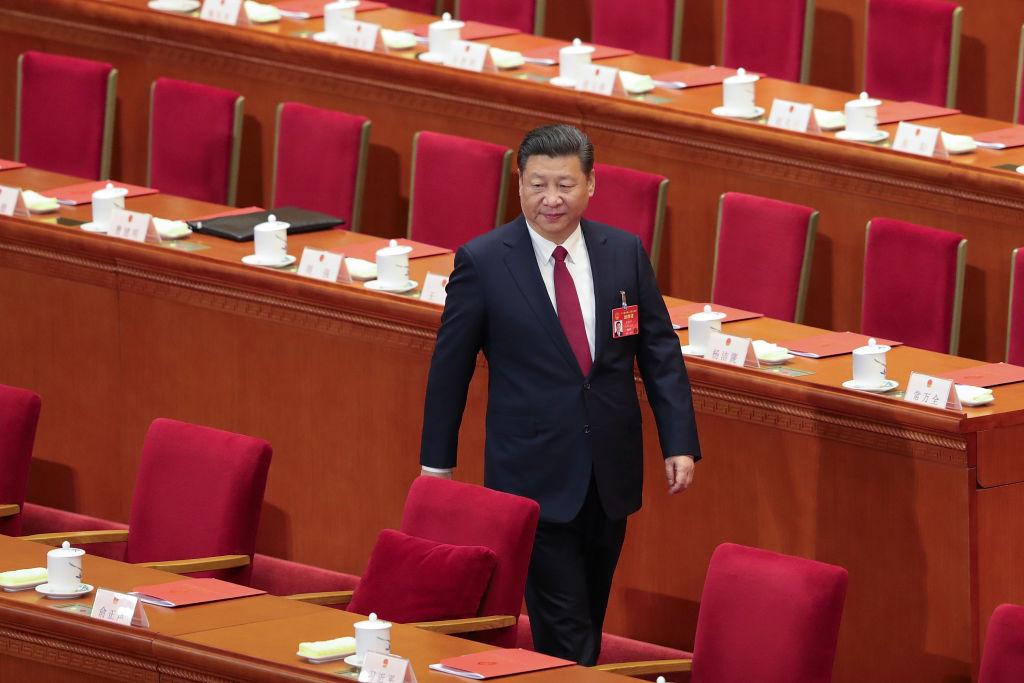
As the Chinese Communist Party’s year-end congress approaches, competition among the party factions is heating up. Not only will the five-yearly party congress, set to begin on 16 October, appoint a new Politburo Standing Committee, China’s highest decision-making body, but more importantly it is expected to extend General Secretary Xi Jinping for an unprecedented third term.
China watchers are busy reading the tea leaves. Will Xi be satisfied with a third term as general secretary, or has he set his sights on becoming party chairman, a position held by Mao Zedong and abolished four decades ago? Who will replace Premier Li Keqiang? And how have a slowing economy and unpopular Covid-19 lockdowns affected Xi’s standing? These are only a few of the issues that are being debated.
In the run-up to party congresses, pundits have traditionally focused on China’s political institutions—the CCP Central Committee, with some 375 members and alternate members; the 25-member politburo; and the powerful standing committee, which currently has seven members. They will also be looking at key party organs, and the norms that govern political appointments.
In Rethinking Chinese politics, Joseph Fewsmith, professor of international relations and political science at Boston University, takes a different tack. He rejects the notion that Chinese politics is institutionalised, reminding us that institutionalisation only began 45 years ago under Deng Xiaoping. The four post-Mao leaders have all taken different approaches to running the country, with disregard or even disdain for its political institutions, whose roots are shallow.
As Fewsmith sees it, ‘The personalization of power, factionalism, the arbitrary abuse of power, corruption, and the lack of discipline within the party continue to plague the party and stand in the way of institutionalization.’ To understand how politicians like Xi function, we should stop fixating on institutions.
Fewsmith reviews the four post-Mao leaders, how they positioned themselves, consolidated their power, manipulated to get their supporters into key positions, and tried to influence their succession.
Deng succeeded in shunting aside Hua Guofeng, who was Mao’s anointed successor, consolidated his position to become China’s supreme leader, and built up China’s political institutions. He never formally held the top party position, but remained highly influential long into retirement.
Jiang Zemin is frequently referred to as the ‘accidental general secretary’. His appointment following the ouster of Zhou Ziyang after the Tiananmen Square demonstrations was entirely unplanned. It took Jiang several years to establish himself, but during his second term he had a firm grip on power. After retiring, he held on to the chairmanship of the Central Military Commission for two years and continued to manipulate events behind the scenes, looming over much of Hu Jintao’s decade in office. Despite his 95 years, to this day Jiang remains the most influential of the party elders.
What conclusions can one draw from China’s recent history? Most China analysts assess China’s power struggles and leadership transitions in the context of the institutional framework established by Deng. Fewsmith thinks they are barking up the wrong tree and should be analysing power politics, plain and simple.
Each of the post-Mao leaders—Deng, Jiang, Hu and Xi—has promoted people who supported them; ousted those who did not, skilfully balanced factions against each other; and bent, broken or revised the rules to suit their own ends.
In many ways, Chinese politics makes more sense when one discards notions of institutionalisation and inviolable norms. Deng started by staying in power far beyond the rules that he himself established for the top leaders, and Jiang stayed on beyond the established age limits and turned his back on political norms when it suited him.
Xi has gone much further than his predecessors by simply scrapping the framework established by Deng. To get into office, he had to have his arch-rival Bo Xilai jailed, and prior to the November 2012 party congress he negotiated behind the scenes to reduce the size of the Politburo Standing Committee from nine to seven and stack it with his own supporters.
Once in office, he initiated an ‘anticorruption campaign’ which netted many of his enemies and made it clear that he expected loyalty from his supporters. He skilfully suppressed the opposing faction, the Communist Youth League and its representatives, starting with Li.
Xi has discarded the practice of identifying the next generation of leaders five years in advance of a party congress, and effectively reined in or eliminated successor candidates. And he has amended the constitution to allow himself a third term as president (his other two positions, as CCP general secretary and chairman of the Central Military Commission, are not subject to formal limitations). In a nutshell, Xi has dismantled the norms established by Deng, stripping political institutions of their substance.
Fewsmith provides a fresh and realistic framework for analysing the upcoming party congress. His timely book is essential reading for anyone who wants to look beyond China’s frail political institutions.